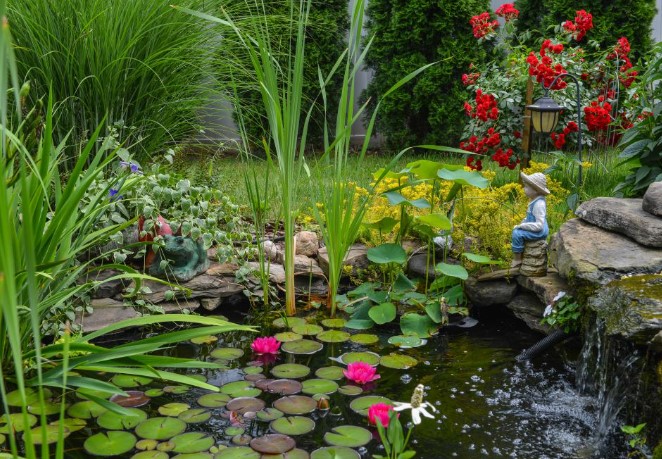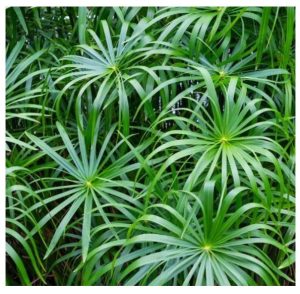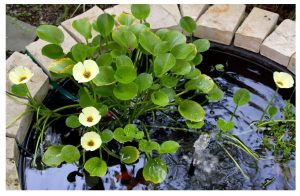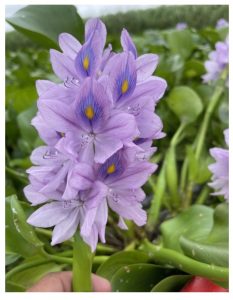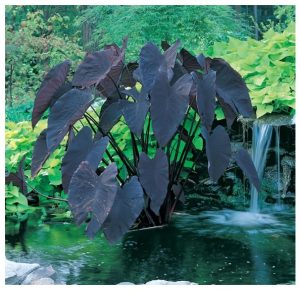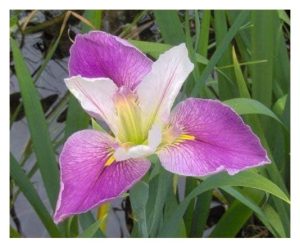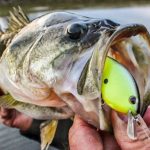A pond turns any outdoor space into a peaceful retreat, but the plants around it play a major role in shaping the view and supporting the ecosystem. The right plants soften the edges of the water, attract birds and butterflies, and keep the environment healthy.
Some plants add bright colors, while others offer tall green backdrops that make the pond look natural and inviting. Hardy grasses, blooming perennials, and moisture-loving ground covers all work together to frame the water in a stunning way.
Plants also help control erosion, improve water quality, and provide shade for fish. A well-planted pond blends into the landscape as if it has always been there.
By selecting the right mix of ornamental and functional plants, you can create a balanced habitat that stays beautiful through every season. The following plants bring both charm and purpose to any pondside setting.
5 Best Plants for Around a Pond
1. Chalily Umbrella Palm, Great Pond Plant
Check Latest Price
Key Features That Stand Out
Tropical Appeal
Umbrella Palm has tall, grass-like stems with umbrella-shaped tops. They sway gently with the wind and create a natural tropical feel. Perfect for summer gardens.
Award-Winning Plant
This plant holds the Royal Horticultural Society’s Award of Garden Merit. Its mix of beauty and resilience makes it a favorite among gardeners.
Natural Filter
The plant helps keep pond water clear. It acts as a natural filter, improving water quality while providing habitat for fish and wildlife.
Easy Growth
Umbrella Palm grows well in both full sun and partial shade. It thrives in moist soil or shallow water. Suitable for hardiness zone 7 and above.
Reliable Quality
Plants from trusted growers arrive healthy and ready to thrive. With proper care, they adapt quickly to their new home.
Why I Recommend It?
Umbrella Palm is more than decoration. It creates a healthy pond environment while looking elegant. Its strong growth and low-maintenance nature make it ideal for both new and experienced gardeners. It does not demand complicated care—just steady moisture and light.
Performance Analysis
Umbrella Palm performs well during summer. Its lush foliage grows quickly in the right conditions. It tolerates both sun and shade, making it flexible for different pond edges. The plant stays attractive through the warm months and adds height and texture that balance shorter pond plants. It also provides shade for fish and helps regulate pond health.
Best For
Garden Ponds
Perfect for outdoor ponds where height and tropical charm are desired.
Fish Lovers
Offers shelter and protection for fish, adding a natural touch to their environment.
Low-Maintenance Gardens
Great for gardeners who want a striking plant without heavy care.
Eco-Friendly Landscapes
Ideal for those who want plants that improve water quality naturally.
My Recommendation
Umbrella Palm stands out as a smart choice for pond edges. It combines style, health benefits, and easy care in one plant. With its award-winning background and tropical appeal, it is one of the best plants for around a pond.
2. AquaLeaf Golden Water Poppies
Check Latest Price
Key Features That Stand Out
Natural Beauty
Water Poppies show off golden flowers with green leaves. The contrast looks striking against the water. They bloom in both summer and winter, adding life all year round.
Growth and Size
The plants reach about 3 inches tall. Compact size makes them easy to manage in ponds of any scale. They can float, but they grow best when planted in aquatic soil.
Eco-Friendly Role
They act as natural biofilters. By absorbing nutrients, they help keep water clear and reduce algae growth.
Pesticide-Free
These plants are grown without chemicals. Safe for fish, frogs, and other pond life.
Care Requirements
They need water and mild conditions to thrive. USDA Hardiness Zone 9 fits them best. Extreme heat or cold can damage them, so timing matters for planting.
Why I Recommend It?
Water Poppies do more than add color. They balance the pond ecosystem by filtering water naturally. They look elegant, stay manageable in size, and remain safe for pond animals. Their ability to bloom during two different seasons makes them reliable for year-round interest.
Performance Analysis
Placed in aquatic soil, the plants grow strong and spread steadily. The floating leaves cover parts of the water surface, offering shade and reducing excess sunlight. This shade limits algae while protecting fish from overheating. Their blooms stay bright, and their structure stays compact, so they never feel overwhelming.
Best For
Small to Medium Ponds
Their size works well in ponds without crowding the space.
Natural Filtration
Owners who want clear water without heavy chemicals benefit the most.
Decorative Appeal
Perfect for people who enjoy yellow blooms and floating greenery.
Wildlife Support
Fish and frogs use them as shelter, making ponds more lively.
My Recommendation
The AquaLeaf Aquatics Water Poppies bring beauty and balance to ponds. They shine with golden blooms, support pond health, and stay easy to manage. Anyone wanting natural charm and cleaner water will find them a smart choice for pond planting.
3. Generic Water Hyacinth (Eichornia Crassipes)
Check Latest Price
Key Features That Stand Out
Organic and Safe
These plants are organic, which means they grow naturally without harmful chemicals. Safe for ponds and the fish that live in them.
Beautiful Blooms
Purple blooms brighten the pond during spring and summer. They stand out against green leaves and add a touch of color to the water’s edge.
Water Filtration
These plants filter water. Cleaner water helps fish stay healthy and keeps the pond clear.
Easy Growth
They grow with little effort. As long as they receive full sun or partial sun, they thrive in most pond settings.
Fish-Friendly
Fish love these plants. They provide shade, oxygen, and a natural habitat.
Why I Recommend It?
Plants that filter water and give shade make a pond healthier. These purple-green plants offer both beauty and function. They are easy to manage and do not demand much care. Their blooms bring life to the pond and make it more enjoyable to watch.
Performance Analysis
The plants do well from spring through summer. They grow fast under sunlight and adapt to both indoor and outdoor setups. Their ability to filter water improves pond quality. The bright purple flowers bloom for weeks, keeping the pond attractive for a long season. They weigh about 2 pounds per unit and come in a count of 12, making them enough to cover a good section of a pond.
Best For
Natural Filtration
Perfect for ponds that need extra cleaning and balance.
Fish Habitats
Provide shade and oxygen, making fish more active and healthy.
Decorative Ponds
The purple blooms add charm and color to outdoor spaces.
Beginner Gardeners
Simple to plant and easy to care for, even for first-time pond owners.
My Recommendation
These purple-green pond plants are a great mix of beauty and function. They improve water quality, support fish, and add color during spring and summer. For anyone who wants a healthier and more attractive pond, these are the best choice.
4. AquaLeaf Aquatics Black Magic Taro
Check Latest Price
Key Features That Stand Out
Unique Appearance
Black Magic Taro has large, dark leaves that stand out. The rich black color adds drama to the pond area. Its shape and texture create a tropical feel.
Healthy Growth
The plant grows best in partial sun and with enough water. It comes in a 2-inch pot, ready for transplanting into a larger container.
Natural Filter
This plant works as a bio-filter. It improves water quality by producing oxygen and absorbing carbon dioxide. That helps fish and other pond life thrive.
Safe and Clean
The nursery grows these plants with modern technology. They are free from pests, snails, diseases, and algae.
Seasonal Beauty
The expected bloom period is in winter. This makes the pond look alive even during colder months.
Why I Recommend It?
Black Magic Taro does more than just look good. It supports the health of the pond. It makes the water clearer and adds oxygen for fish. Its deep black leaves add something special you do not see in many garden plants. A mix of beauty and function.
Performance Analysis
In real use, Black Magic Taro adapts well indoors or outdoors. It stays strong with partial sunlight and enough water. It does not demand heavy care. Its clean growth means no extra worry about pests or algae. In a pond setting, it performs as both decoration and natural cleaner.
Best For
Pond Lovers
Perfect for anyone wanting plants that improve water quality while adding visual appeal.
Low-Maintenance Gardeners
Good for people who want simple care without complex needs.
Winter Color
Ideal for those who want plants that bring life to the pond in winter.
Indoor or Outdoor Use
Can be used around a pond, in a patio garden, or even indoors with the right care.
My Recommendation
The Black Magic Taro is one of the best plants for pond areas. It brings a rare black color that makes the pond space unique. At the same time, it improves water quality and supports fish health. A plant that gives both beauty and balance.
5. AquaLeaf Aquatics Louisiana Iris Bog
Check Latest Price
Key Features That Stand Out
Beautiful Colors
The Louisiana Iris “Colorific” shows off a mix of purple and white blooms. These colors brighten up the pond area during spring and autumn.
Natural Benefits
This plant helps create a bio-filter by producing oxygen and absorbing carbon dioxide. It supports healthy pond water and benefits fish and other pond life.
Grown for Health
Each plant is raised in a controlled nursery with modern technology. This process keeps it free from pests, snails, and algae.
Easy to Start
Sold in a 2-inch pot, the iris is pre-grown and ready for transplanting. With proper care, it adapts quickly and grows strong.
Light and Soil Needs
The plant enjoys partial sun and sandy soil. Simple watering is enough to keep it thriving.
Why I Recommend It?
This iris adds both beauty and function. The blooms stand out while the plant improves water quality. It is also easy to grow, even for beginners. Once transplanted, it adapts well to pond edges or patio gardens. A plant that looks good and works hard for the pond environment.
Performance Analysis
The Louisiana Iris grows strong in spring and autumn. Partial sunlight supports its bright flowers, and sandy soil keeps it well-rooted. With regular watering, it maintains healthy growth. The plant holds up well in natural conditions and continues to support water health over time. Its disease-free and pest-free start makes it more reliable compared to wild pond plants.
Best For
Pond Edges
Perfect for planting around the outer edge of a pond where roots can spread.
Patio Gardens
Works well in containers placed near water features or small ponds.
Eco-Friendly Spaces
Great for pond owners who want plants that clean water and add oxygen.
Seasonal Blooms
Ideal for gardeners who enjoy spring and autumn flowers.
My Recommendation
The Louisiana Iris “Colorific” is a smart choice for anyone planning to grow plants around a pond. It combines beauty, health benefits, and ease of care. With its purple and white flowers and natural water-filtering ability, it deserves a spot near every pond.
Final Thoughts
Pond areas need plants that add beauty and also support water health. The Louisiana Iris “Colorific” does both with ease. Its purple and white flowers bring color while its roots help improve water quality. For gardeners who want simple care and lasting value, this iris stands out as one of the Best Plants for Around a Pond.
FAQs
1. What type of soil is best for pond plants?
Sandy soil works well because it drains easily and allows roots to grow strong.
2. Do pond plants need direct sunlight?
Most pond plants prefer partial sun. Too much heat can stress the plant, while low light may reduce flowering.
3. Can pond plants improve water quality?
Yes. They add oxygen, absorb carbon dioxide, and reduce waste buildup, which keeps pond water cleaner.
4. How often should I water pond plants?
Plants near a pond usually get enough moisture from the surrounding water, but regular watering helps if planted in containers.
5. What season does the Louisiana Iris bloom?
It blooms during spring and autumn, giving bright colors twice a year.


